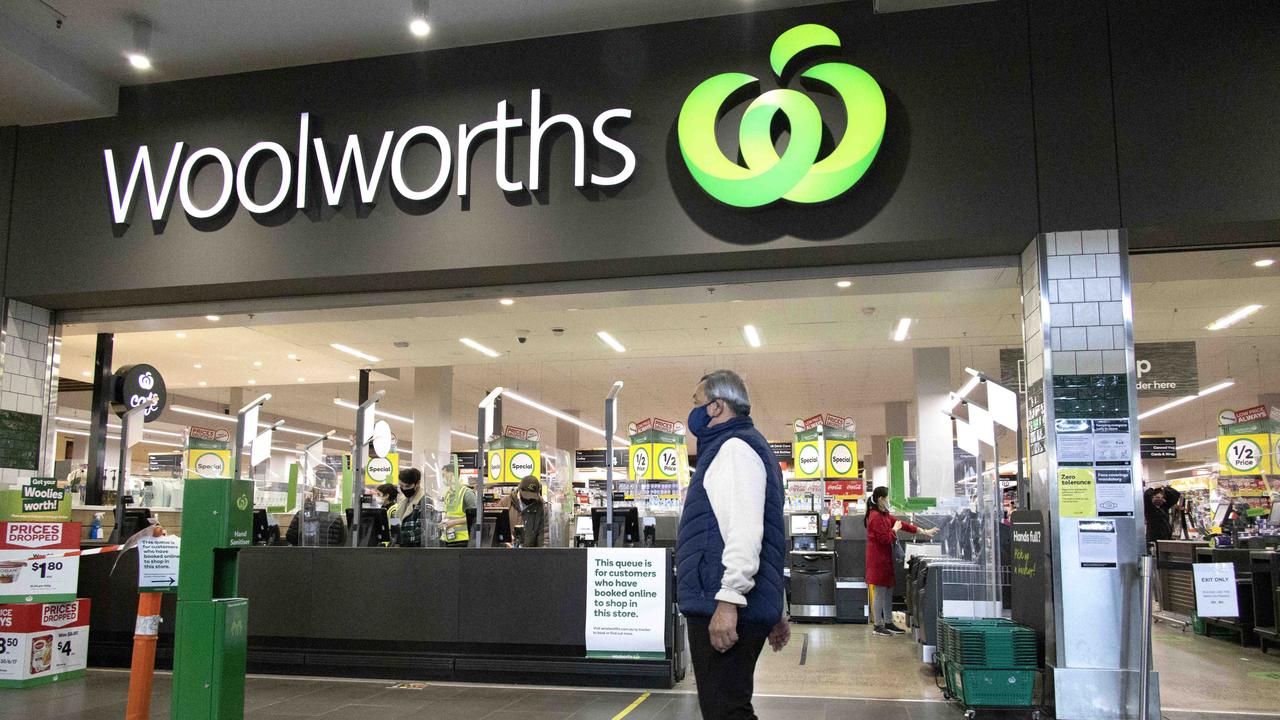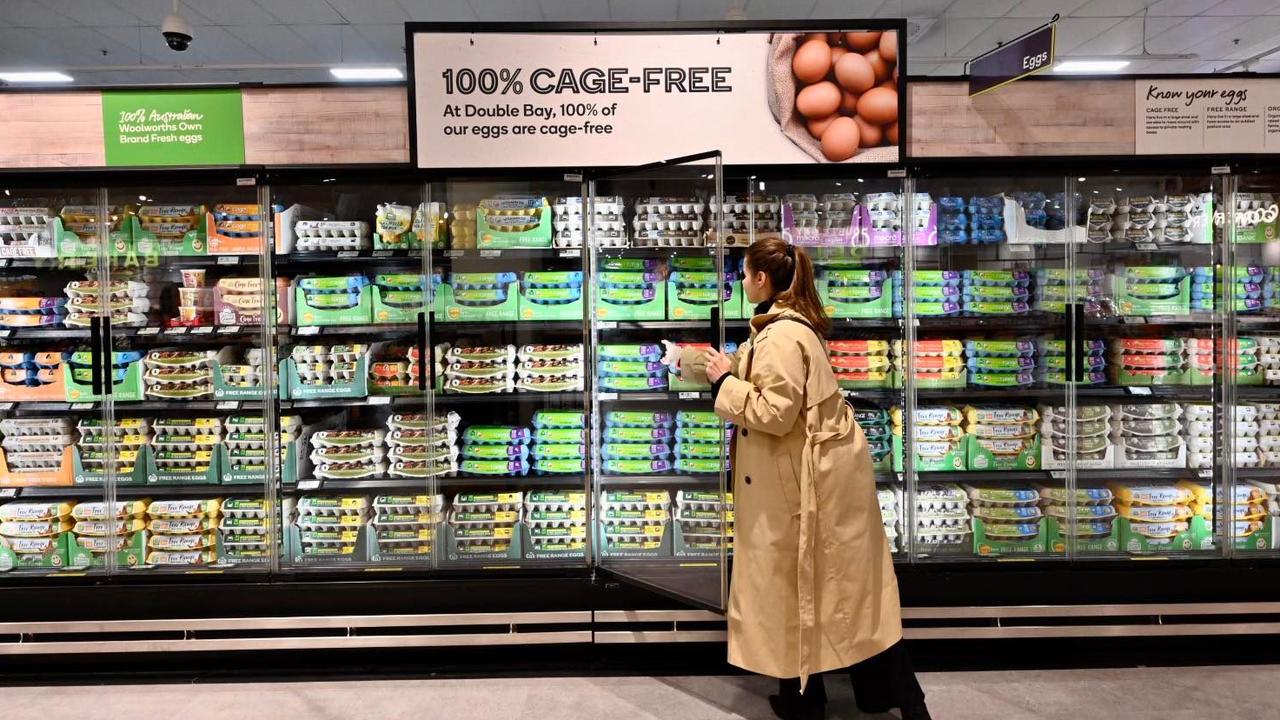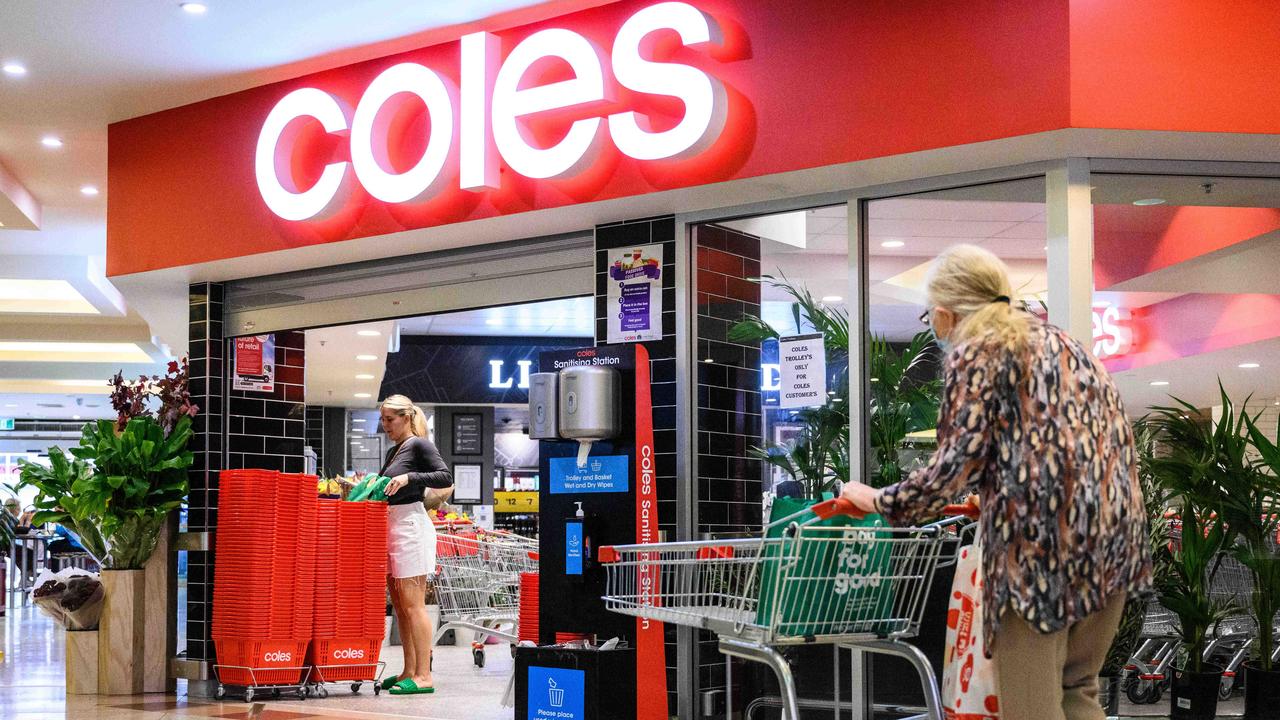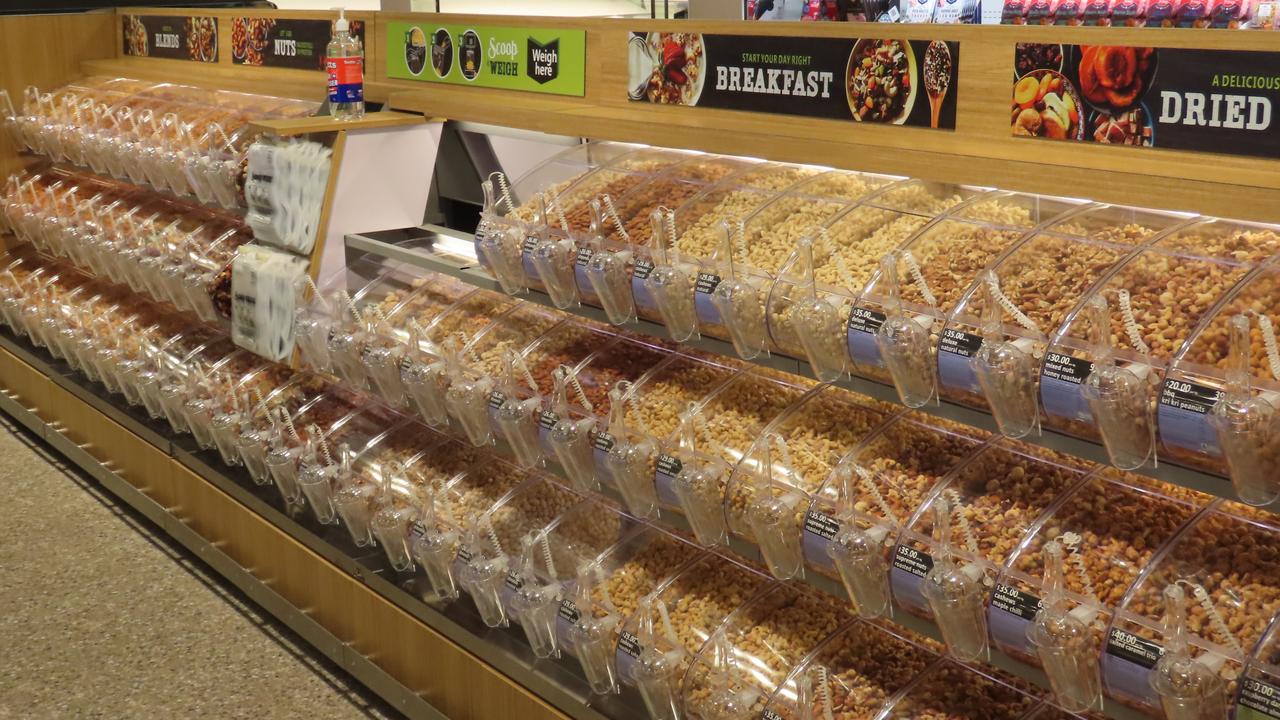Food prices jump by 5.3 per cent at Woolworths and Coles, according to UBS
New data has revealed that the costs of 60,000 grocery products at Australia’s two major supermarkets have spiked by an alarming rate.
The price of around 60,000 grocery prices at Woolworths and Coles have skyrocketed by an average of 5.3 per cent in the past three months from June, new analysis has revealed.
However, price rises were higher at Woolworths at 5.5 per cent, according to global financial firm UBS, compared to 5.1 per cent for Coles.
Promotional activities and discounting at both supermarkets had also dropped, UBS analyst Shaun Cousins found, a trend he attributed to supply chain pressures impacting availability of products but also a push by the retailers to boost profits.
The firm also forecast that the price of grocery items will continue to soar with an even higher increase expected in the September quarter.
Stream more finance news live & on demand with Flash. 25+ news channels in 1 place. New to Flash? Try 1 month free. Offer ends 31 October, 2022 >

Price rises in the supermarkets were highest for fresh produce, increasing by 5.5 per cent, while dry grocery products went up by 5.2 per cent, UBS reported.
The analysis found food prices rose their highest in the June quarter, up by 5.3 per cent, compared to 3.8 per cent in the March quarter and 1.2 per cent in the December quarter.
The inflation of food prices will peak late in 2022, Mr Cousins predicted, but warned “commodity pressures remain, while further labour cost inflation will need to be absorbed, and fuel and energy costs are likely to stay elevated”.
A Woolworths spokesperson said managing industry-wide inflationary pressures will continue to be the focus for the supermarket as its work hard to provide customers with great value in partnership with their suppliers through programs like Prices Dropped for Winter and Price Freeze, as well as the thousands of weekly specials across their stores.
“While we’re working to continue to provide our customers with great value, it’s important we also support our suppliers in covering their increasing production costs to ensure they can continue to produce the food and groceries needs of all Australians,” they said.
“We review each cost increase request from our suppliers on a case-by-case basis and are mindful of sensitively managing ongoing inflationary pressure on food and groceries.
“We never make the decision to increase costs lightly and remain committed to delivering competitive prices and great value for our customers.”

A Coles spokesperson said since January, the supermarket have reduced prices on over 1000 items across their range of more than 20,000 products.
“Coles has also kept prices low on key items our customers rely on to feed their families like Coles Brand Pasta 500g, famous Coles Mum’s Sause 500g, Coles Beef & Pork meatballs 560g, and Coles Tuna 95g – just a few of the thousands of products that have remained at the same price for the past year,” they said.
The spokesperson added that Coles has introduced $1 or less offers across hundreds of essential everyday items, including pasta, soup, tuna and canned Italian tomatoes.

Fast food feeling the pinch
Fast food operators are also pushing up prices as they feel the pressure of Australia’s rising cost of living.
Hungry Jack’s said menu prices had increased at a “faster rate” over the last six months and warned there would be further price rises over the next six to 12 months.
Earlier this month, Domino’s Pizza announced it had added in a 6 per cent delivery fee.
The pizza chain insisted it was a “small fee”, with a $30 pizza order incurring an extra $1.80 for delivery as a result of the change.
Last month, consumers in NSW, Victoria, Queensland, the ACT and Tasmania were outraged when they learnt KFC was putting cabbage in its burgers.
KFC advised that customers may have a “temporary blend” of lettuce and cabbage in their meals to make up for the lettuce shortage, although that problem has largely now been resolved.
It also flagged that it would be lifting menu prices for a third time later in 2022, likely to be around 1 to 2 per cent.

But rising prices in Australia are actually driving corporations’ profits to record highs which in turn is sending inflation up, damning new research has found.
The Australia Institute released the shocking findings in a report on Monday, saying that it is actually the corporate sector that needs to tighten its belt to control inflation, not workers.
“The national accounts show it is rising profits, not rising costs, that are driving Australia’s inflation,” Australia Institute chief economist Dr Richard Denniss said.
The Reserve Bank has warned inflation could hit 7 per cent before the end of the year, with the inflation rate recorded at 5.1 per cent in the March quarter, although Treasurer Jim Chalmers has warned the July update will reveal “confronting” news for Australians.






